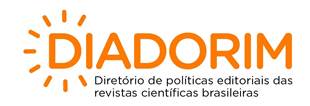“No Pain, More Gain”? Affect and Adherence to Exercise in Migraine Patients: A Prospective Cohort Study
Views: 1041DOI:
https://doi.org/10.48208/HeadacheMed.2019.13Keywords:
Psychology, Headache Disorders, Healthy Lifestyle, Sedentary Behavior, ExerciseAbstract
Objectives: To compare the affective and perceptual responses to a standardized exercise session between episodic migraine patients and nonheadache persons, and its influence on adherence to an 12-week exercise training program. Methods: In a secondary analyses of a prospective cohort enrolled in a clinical trial, we assessed the affective response at rest, at 15th min
of exercise, and immediately after an acute 40-min exercise session previously the training program. All measurements were undertaken in headache-free days. Participants were subsequently randomly assigned to a 12-week aerobic exercise-training program, or to a waitlist. In a multiple linear regression model, variables tested as possible predictors of adherence were body mass
index, cardiorespiratory fitness, and the perceived exertion and affect scores elicited in the previous exercise session. Results: Fifty-four participants were analyzed for acute exercise session data (mean±SD age: 37.37±11.5; mean±SD BMI: 26.7±4.5). Patients (N=28) and controls (N=26) showed no differences in anthropometric characteristics and cardiorespiratory fitness. Compared to controls, migraine patients showed reduced affective response during and after exercise, but showed no differences in perceived exertion. Twentyfive participants (patients: N=13; controls: N=13) concluded the 12-week exercise-training program. Adherence was lower in migraine group (p = 0.1, d = 0.641). Multiple linear regression analysis showed post-exercise affect score as the only predictor variable of adherence to the exercise-training program (β =0.405, p = 0.040). Conclusions: This study indicates that migraine patients
have lower affective response to exercise, which was associated with adherence to the training program.
Downloads
Published
How to Cite
Issue
Section
License
Copyright (c) 2019 Headache Medicine

This work is licensed under a Creative Commons Attribution 4.0 International License.












